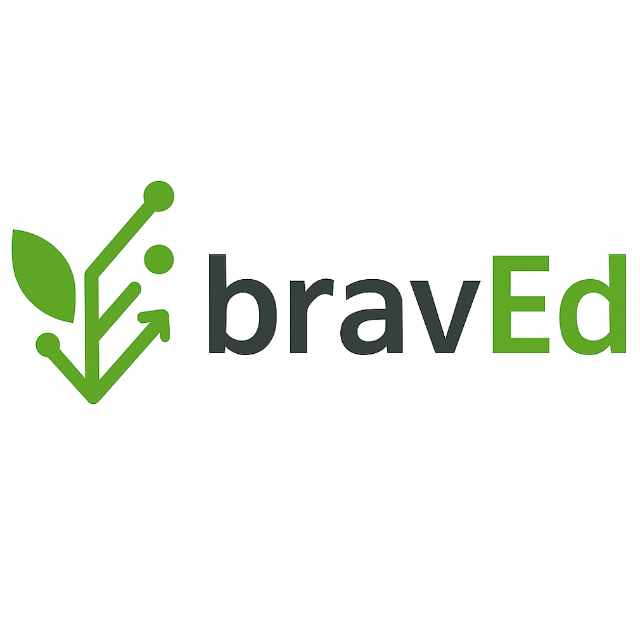The Minnesota Network for Benefits-Based Accountability
About the Minnesota Network
The Minnesota Network for Benefits-Based Accountability is being established as a grassroots, district-led effort to help reshape the way accountability is understood and practiced across the state—without waiting for policy to change.
bravEd, led by John Tanner, is the architect behind Benefits-Based Accountability, which is research-based approach to accounting for what matters that has served to build trust in a wide variety of professions and organizations. bravEd will manage the Network in collaboration with a chaired advisory group. The bravEd platforms and IP will be used throughout.
At its core, accountability for what truly matters should never have depended on external mandates. It should have always been an internal discipline of leadership—driven by trust, transparency, and local effectiveness.
That said, accountability policy will always exist. Our goal is to shift the narrative so that policy is shaped by systems that actually work—systems we build, prove, and can stand behind—rather than being forced to operate within frameworks that fail to reflect the full scope of what schools do and why it matters.
Any school or district in the state is invited to this work.
Advisory Group:
TBD
District/School Members
TBD
Tentative Schedule for 2025-27 School Years:
Now through August 2025: Recruit schools and districts into the work.
June 24 - July 22, 2025: This is the summer series for Accounting for What Matters. Districts that have registered for the fall by that date can send their leadership teams as part of their membership.
July 1 - September 31 2025: Preliminary survey efforts to determine starting benefit list for participating Minnesota network districts. So long as a district has expressed, in writing, their intent to join, the survey will be made available to them for distribution.
August 2025 (site and date TBD): In-person launch on-site. This is to prep all principals and superintendents to be ready to lead the work in their organizations. The Advisory Group will produce the draft list of MN benefits.
Late August/start of the school year 2025: Each principal forms their small team and introduces them to what the work will look like. Most importantly is to communicate that this is not an initiative or a program another thing to do. Everyone already does these things. This helps everyone do them so much better.
Mid-September 2025: Last chance to join Cohort I
Late September 2025: Cohort efforts commence. We'll meet as a Network nine times throughout the school year.
November 2025: Advisory Group meets.
January 2026: Board event to introduce this work to those with a governance responsibility.
Late January 2026: New leaders in each school and district are invited to participate in the winter Accounting for What Matters seminar series as a way of inducting them into the work.
May 2026: Last Cohort session. Advisory Group meets. Recruitment for Cohort II begins.
Summer 2026: Recruitment continues.
Fall 2026: Cohort I continues, Cohort II commences.
TBD
Frequently Asked Questions
Is this an anti-testing effort?
Not at all. We recognize that state- and federally-mandated tests can serve legitimate research and diagnostic purposes. However, in the current accountability landscape, these tests are often used in ways they were never intended—distorting both their value and their impact. Our goal isn't to bash standardized testing, but to be clear-eyed about its misuses and ensure it no longer limits the scope of what schools can be accountable for.
Is this about new or different tests?
No. Most accountability reform efforts have focused narrowly on finding the “right” test to measure school performance. But that puts education at odds with nearly every other profession, where accountability is not built around a single metric. There are far more effective models available—and we’re adopting those.
Will this get me in trouble?
Not at all. Here’s the truth: Parents care about dozens of things when it comes to their child’s school experience—things like safety, belonging, engagement, and support. Current state systems account for maybe one or two of those. This effort simply fills in the gaps, giving you a way to account for the full picture of your work in a way families can see and trust. That’s not controversial—it’s responsible leadership.
What does the effort look like?
Participating involves just a few hours a month, including time spent in a peer Cohort every few weeks. Accountability was never meant to be a burden—it’s about how you explain your decisions, actions, and impact. In fact, most participants find the time commitment is offset by supplanting less helpful efforts.
Who should be involved?
True accountability starts at the school level and scales upward. That means each principal is encouraged to bring a small, committed team. Superintendents should involve key members of their cabinet and district leadership teams. The process is collaborative, not top-down—and that's what makes it work.

